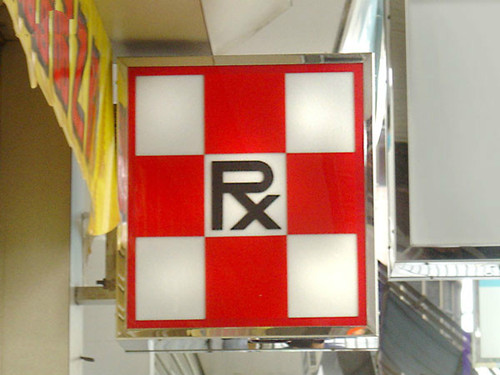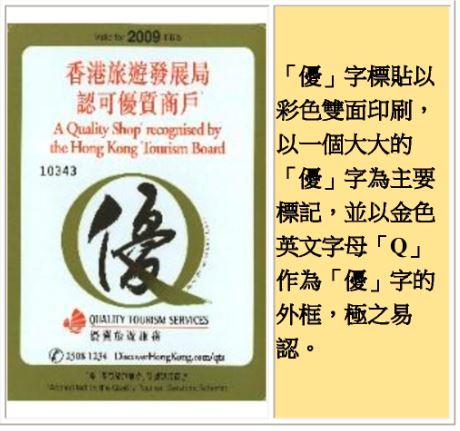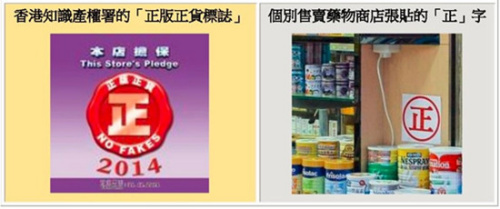Tips for buying medicine in Hong Kong: I will teach you to distinguish the names of five pharmacies at once (Figure)
Some time ago, the black pharmacy incident hit many tourists’ confidence in buying drugs in Hong Kong. In fact, black pharmacies are not common, and most drugs sold in Hong Kong pharmacies still have quality assurance. This requires consumers to be eager to go to reputable pharmacies to buy medicine.
Which pharmacies have quality assurance? The easiest way to identify: first look at the store name!
Walking on the streets of Hong Kong, there are many pharmacies. Although they all have the word "medicine", few tourists notice the difference in the names of these stores. The names of shops selling drugs in Hong Kong mainly include pharmacies, drug stores, drug stores, pharmaceuticals and pharmacies. There are three pharmacies in a row on Haiphong Road in Tsim Sha Tsui, which is particularly representative.
pharmacy
According to the laws of Hong Kong, only "authorized poison sellers" (commonly known as pharmacies) with registered pharmacists can dispense prescription drugs (such as antihypertensive drugs, antibiotics, steroids and psychotropic drugs). All pharmacies must employ at least one registered pharmacist to provide professional services, and the license plate and working hours of the resident pharmacist should also be displayed in a prominent place in the pharmacy.
The website of the Drug Office of the Hong Kong Department of Health has uploaded a list of "authorized sellers of poisons" for consumers to check. All pharmacies are marked with the "Rx" sign of the Red Cross on a white background for identification. Look carefully! This is the LOGO!

Yaohang
Retail stores that hold the license of "listing poison sellers" and sell over-the-counter drugs (such as cold medicine or throat candy) and proprietary Chinese medicines are generally called "drug stores", without the "Rx" logo and without employing pharmacists.
Zheng Qiwen, president of the Hong Kong Association of Licensed Pharmacists, pointed out that shops with the words "pharmacy" or "drug store" are registered with the Pharmacy and Poisons Administration and supervised by the Department of Health. Therefore, when tourists come to Hong Kong to buy medicine, it is best to go to a pharmacy or a pharmacy with the name of a drug store, and of course it depends on whether there is a "Rx" sign.
Drugstore & pharmacy & drugstore
As for other shops selling drugs, such as "pharmacies", "pharmaceutical industries" and "pharmacies", they only have business registration and can only sell general drugs and proprietary Chinese medicines.
In addition, from time to time, some pharmacies are found in the market with eye-catching neon signs indicating "government registration" and "tax exemption", and some shops even put up "excellent" and "positive" signs. Are these words and signs a guarantee for shopping with peace of mind? Refer to the following information to avoid losses caused by misleading:
1. Claiming "government registration"
When you see a shop selling drugs in a prominent position, the word "government registered" is displayed in a flashing neon advertising light box, and you may immediately think that this shop has been registered by the government, so you can go shopping safely. As a matter of fact, all retail stores operating in Hong Kong are required to register their businesses with the Government Business Registration Office., Therefore, a store marked with "Government Registration" may only mean that it has obtained a business registration certificate.
2. "Duty-free" shopping discount
Passengers may find that many shops in tourist areas advertise with dazzling light boxes, and even sign the word "tax-free" in big letters. However, Hong Kong is a free port, and most imported or exported goods do not have to pay any customs duties. According to the Dutiable Commodities Ordinance, only four types of goods are dutiable, including alcohol, tobacco, hydrocarbon oil and methanol.
3. Identify the "excellent" label
It has been reported that some shops selling drugs have posted the word "excellent" which is suspected to be the "quality tourism service plan" of the Hong Kong Tourism Board. The logo is very similar to that of the Hong Kong Tourism Board in font and design.

Some shops selling drugs have posted the word "Zheng". What does the word "Zheng" mean? The "Genuine Goods Commitment" program of the Intellectual Property Department of Hong Kong is marked with the word "Genuine Goods" (left in the figure below), and all the merchant members (including pharmacies and drug stores) who are "Genuine Goods Commitment" will post the "Genuine Goods Commitment" label and seat card in their stores. With this sign (left in the figure below), passengers can easily identify the merchants who support genuine goods. However, some shops have posted the "positive" label (pictured on the right) in an attempt to confuse the audience and promote the goods they sell as "positive goods". Visitors should also pay attention to avoid being misled.

Of course, pharmacies called pharmacies and drug stores can’t have 100% quality assurance, and you need to pay attention to the following matters:
1. Collect information: collect or ask relatives and friends for information about brands to buy in advance. Some well-known brands in Hong Kong have company websites containing information about products they produce or represent.
2. Choose shops: patronize pharmacies, drug stores or large chain stores with good reputation and good reputation; Or go shopping in the "Quality Tourism Service Plan" of the Hong Kong Tourism Board (shops are labeled with "excellent") and the "Genuine Goods Commitment Plan" of the Hong Kong Intellectual Property Department (shops are labeled with "positive").
3. Check the product information: carefully check the name of the drug, the name and address of the manufacturer or agent before payment; And pay attention to the batch number and expiration date of the drug, so as to prevent the clerk from hastily wrapping the product with wrapping paper, so that you have no chance to check it. It’s best to check it properly before asking for packaging if necessary.
4. Pay attention to anti-counterfeiting features: Some proprietary medicines sold in the market have added anti-counterfeiting features, such as laser labels, so pay attention when buying.
5. Check the registration number: If you buy western medicine or Chinese patent medicine, you should check whether the relevant Hong Kong registration number is printed on the package of the medicine, namely "HK-XXXXX" for western medicine and "HKC-XXXXX" or "HKP-XXXXX" for Chinese patent medicine. If it is necessary to check the information of registered western medicines and proprietary Chinese medicines, consumers can refer to the websites of the Drug Office of the Department of Health of Hong Kong and the Chinese Medicine Council of Hong Kong.
6. Firm mind: insist on buying the drug brand you want, and don’t blindly listen to the sales promotion of the clerk and switch to other brands.
7. Ask for a receipt: ask for an official receipt, which must list the name, quantity and selling price of the drugs purchased. If problems are found, they can also be investigated.
8. Complaints and enquiries: If you have doubts about the drugs you have purchased, you can call the relevant pharmaceutical companies or agents for enquiries. If you find that the drugs you buy are suspicious, or the sales methods of pharmacies are problematic, you can report or inquire to the following organizations:
Hong Kong Customs hotline: (852) 2545 6182
Hong Kong Department of Health Drug Complaint Hotline: (852) 2572 2068
Hotline of Chinese Medicine Council of Hong Kong: (852) 2121 1888